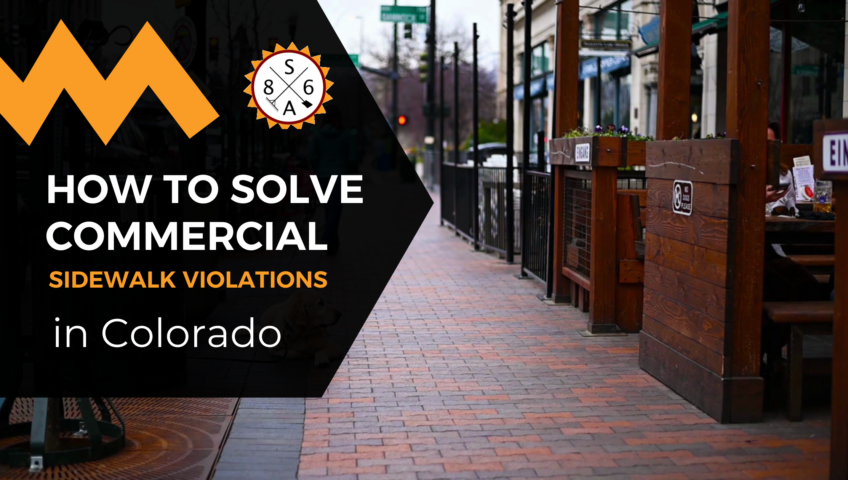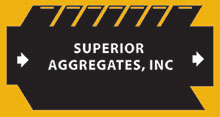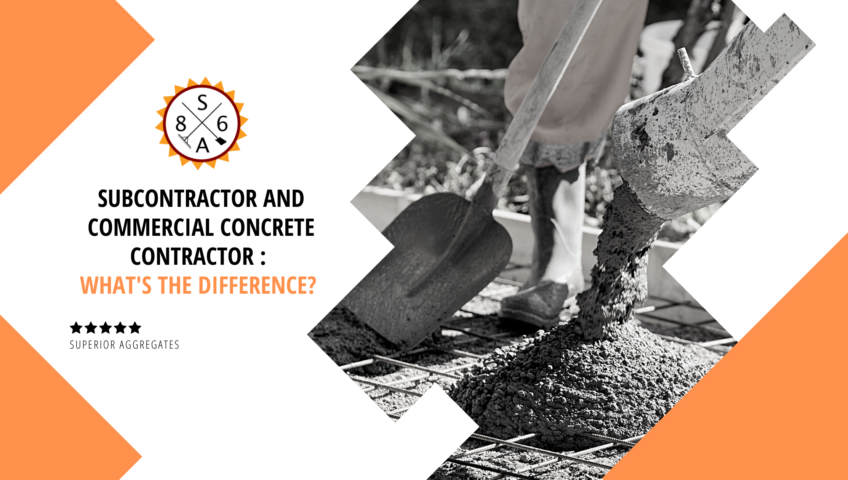
How To Solve Commercial Sidewalk Violations in Colorado
Commercial sidewalks are identified by their colossal pedestrian volumes, active ground floors, street-facing entrances, spillovers of commercial activity, and loading-related activities. They are mostly found on commercial streets, which vary in size from significant streets to small alleys.
In Colorado, many regulations are governing residential sidewalks, commercial sidewalks, and main street sidewalks. It is essential to notice rules and sidewalk violations in Colorado controlling commercial sidewalks to avoid fines and penalties.
Six common sidewalk violations in Colorado
Commercial sidewalks in Denver are vital as they promote pedestrian safety and increase people and goods’ ease of mobility. Sidewalks also encourage business development and recreational activities.
A sidewalk violation is an official notice from the Department of Transport (DOT) stating that the sidewalk is defective and a fine or penalty made, and repairs done to meet the set guidelines. Once you are issued with a violation notice, you will be allotted 75 days to fix the sidewalk or pay the DOT to do it for you.
Below are some of the commercial sidewalk violations in Colorado:
1. Chipped Sides
Chipped sides are sides that have loose chips or serrated sides. They can hurt the feet of those walking on them by causing the user to fall or, in extreme cases, scrub the skin of pedestrians.
2. Cracked Slabs
With time, slabs are subjected to harsh weather, fluctuating temperatures, over-usage, or misuse. Due to inferior quality construction materials such as poorly mixed concrete, they develop lines of cracks or break down unevenly in extreme cases.
The cracked slabs threaten pedestrians as they could strike their feet and cause them to stumble or hurt their feet. In some cases, they could cause certain shoe types to stick in them and damage the shoes, which could evoke resentment from the shoe owners.
3. UNeven Tile Placement
During tile placement, some tiles could be placed at varying levels causing their edges to remain exposed. Such tile placements decrease the aesthetic value of the sidewalk. Those using such sidewalks could trip and get injured. Unevenly leveled slabs also cause poor drainage, which shortens the lifespan of sidewalks.
4. Metal Inlets and Sewer Covers Exposed
Many utility holes, underground maintenance lines, and sewer drainage lines are built into the sidewalk. Exposed covers and inlets of these lines can cause people to stumble as they walk on the sidewalk, especially when they rise. If they’re loose, their exposed side also poses a risk to sidewalk users.
5. Plant and Tree Growth
As trees mature, they develop more prominent and more complex roots, sometimes exposed to sidewalks. The roots can cause people to trip and fall. Furthermore, roots can crack slabs, cause the sidewalk to have chipped sides, or dislodge manhole covers. If the tree is growing close to tiles, it may dislodge the tiles from its base. Trees thus create additional three violations when they expose their roots.
6. Snow and Ice
Sidewalks can turn into dangerous places during winter. Snow and ice cause inaccessibility and discourage movement. Ice could cause pedestrians to slip and get hurt.
How to Bring the Sidewalk Back to Standards
With the correct knowledge and strategy, dealing with sidewalk violations in Colorado can be a piece of cake.
Follow these tips to deal with your sidewalk:
Dealing With Trees That Cause Violations
To deal with the tree roots causing problems, it may be advisable to remove the tree. Cutting down the tree is the first step and has to be followed by removing the stump connected to the roots damaging your sidewalk. To do this, you also have to get a permit from the city.
After removing the tree stump, you could replace the sidewalk or contact asphalt companies to quote the full replacement quotes. Also, remember to replace the tree as they too are essential for the environment.
Do a Complete Overhaul and Replace With Asphalt
Asphalt is a sturdy and uniform substance that is used to make roads and sidewalks. Replacing broken slabs, uneven or broken tiles, and chipped sides with asphalt has the following advantages:
- Asphalt is continuous; hence any unevenness does not pose any risk to pedestrians
- Asphalt is rugged and durable in all weathers, which means it rarely cracks, and even when cracks occur, they are minute and cannot harm pedestrians.
- Asphalt is relatively cheap to purchase, use and also maintain.
- Using asphalt is faster than using slabs and tiles.
- Asphalt makes it easier to clear ice and snow during winter.
If you seek to use asphalt, it is recommended to seek certified asphalt companies in Denver. The company should handle the whole replacement process, from acquiring permits to restoring the environment after the overhaul.
Remove Ice and Snow from Sidewalks
The municipal authority of Colorado stipulates that the responsible party of a commercial property should remove ice and snow after 24 hours of snowfall and where snow is greater than 4 inches. Use salt or brine to eliminate the snow, or hire a snow removal company to do the job.
Commercial sidewalks are identified by their colossal pedestrian volumes, active ground floors, street-facing entrances, spillovers of commercial activity, and loading-related activities. They are mostly found on commercial streets, which vary in size from significant streets to small alleys.
In Colorado, many regulations are governing residential sidewalks, commercial sidewalks, and main street sidewalks. It is essential to notice rules and sidewalk violations in Colorado controlling commercial sidewalks to avoid fines and penalties.
Six common sidewalk violations in Colorado
Commercial sidewalks in Denver are vital as they promote pedestrian safety and increase people and goods’ ease of mobility. Sidewalks also encourage business development and recreational activities.
A sidewalk violation is an official notice from the Department of Transport (DOT) stating that the sidewalk is defective and a fine or penalty made, and repairs done to meet the set guidelines. Once you are issued with a violation notice, you will be allotted 75 days to fix the sidewalk or pay the DOT to do it for you.
Below are some of the commercial sidewalk violations in Colorado:
1. Chipped Sides
Chipped sides are sides that have loose chips or serrated sides. They can hurt the feet of those walking on them by causing the user to fall or, in extreme cases, scrub the skin of pedestrians.
2. Cracked Slabs
With time, slabs are subjected to harsh weather, fluctuating temperatures, over-usage, or misuse. Due to inferior quality construction materials such as poorly mixed concrete, they develop lines of cracks or break down unevenly in extreme cases.
The cracked slabs threaten pedestrians as they could strike their feet and cause them to stumble or hurt their feet. In some cases, they could cause certain shoe types to stick in them and damage the shoes, which could evoke resentment from the shoe owners.
3. UNeven Tile Placement
During tile placement, some tiles could be placed at varying levels causing their edges to remain exposed. Such tile placements decrease the aesthetic value of the sidewalk. Those using such sidewalks could trip and get injured. Unevenly leveled slabs also cause poor drainage, which shortens the lifespan of sidewalks.
4. Metal Inlets and Sewer Covers Exposed
Many utility holes, underground maintenance lines, and sewer drainage lines are built into the sidewalk. Exposed covers and inlets of these lines can cause people to stumble as they walk on the sidewalk, especially when they rise. If they’re loose, their exposed side also poses a risk to sidewalk users.
5. Plant and Tree Growth
As trees mature, they develop more prominent and more complex roots, sometimes exposed to sidewalks. The roots can cause people to trip and fall. Furthermore, roots can crack slabs, cause the sidewalk to have chipped sides, or dislodge manhole covers. If the tree is growing close to tiles, it may dislodge the tiles from its base. Trees thus create additional three violations when they expose their roots.
6. Snow and Ice
Sidewalks can turn into dangerous places during winter. Snow and ice cause inaccessibility and discourage movement. Ice could cause pedestrians to slip and get hurt.
How to Bring the Sidewalk Back to Standards
With the correct knowledge and strategy, dealing with sidewalk violations in Colorado can be a piece of cake.
Follow these tips to deal with your sidewalk:
Dealing With Trees That Cause Violations
To deal with the tree roots causing problems, it may be advisable to remove the tree. Cutting down the tree is the first step and has to be followed by removing the stump connected to the roots damaging your sidewalk. To do this, you also have to get a permit from the city.
After removing the tree stump, you could replace the sidewalk or contact asphalt companies to quote the full replacement quotes. Also, remember to replace the tree as they too are essential for the environment.
Do a Complete Overhaul and Replace With Asphalt
Asphalt is a sturdy and uniform substance that is used to make roads and sidewalks. Replacing broken slabs, uneven or broken tiles, and chipped sides with asphalt has the following advantages:
- Asphalt is continuous; hence any unevenness does not pose any risk to pedestrians
- Asphalt is rugged and durable in all weathers, which means it rarely cracks, and even when cracks occur, they are minute and cannot harm pedestrians.
- Asphalt is relatively cheap to purchase, use and also maintain.
- Using asphalt is faster than using slabs and tiles.
- Asphalt makes it easier to clear ice and snow during winter.
If you seek to use asphalt, it is recommended to seek certified asphalt companies in Denver. The company should handle the whole replacement process, from acquiring permits to restoring the environment after the overhaul.
Remove Ice and Snow from Sidewalks
The municipal authority of Colorado stipulates that the responsible party of a commercial property should remove ice and snow after 24 hours of snowfall and where snow is greater than 4 inches. Use salt or brine to eliminate the snow, or hire a snow removal company to do the job.

